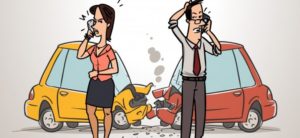Protecting Children From Car Crash Injuries

If you regularly commute around town in your personal vehicle, a car accident is one of the worst possible scenarios you can find yourself in. At the very least, they will ruin your day, and at the very worst, they can seriously affect your life moving forward. Crashes affect everyone involved, but for parents traveling with young children, they can be especially stressful. Generally speaking, the younger the passenger, the higher the risk of injury.
Before we discuss some of the safety tips associated with traveling with kids, it is important to remember that all accident victims are in need of quality legal representation so that they can recover compensation not only for their own injuries but also the injuries of any passengers. Van Law Firm is always vetting new accident cases–call our office nearest you for more information.
The CChIPS and Crash Statistics
For a free legal consultation, call (725) 900-9000
In the U.S., car crashes are one of the biggest contributors in terms of child injuries each year. According to the Centers for Disease Control and Prevention (CDC), in 2018 alone, 97,000 children under 12 years of age were injured in accidents, with over 630 deaths. Amazingly, in the accidents involving death, the CDC cites that 33 percent (one-third!) of victims were not buckled up in proper car seats.
As far as child safety is concerned, car seats and restraints–also known as Child Restraint Systems, or CRS–are the biggest safety factor. The Center for Child Injury Prevention Study (CChIPS) is an agency devoted to the study of child safety, and they do a lot of research related to auto accidents. One of their most recent studies has to do with the efficacy of rear vs. front-facing Child Restraint Systems.
Front vs. Rear-Facing CRS
Click to contact our personal injury lawyers today
The CChIPS study of car seat orientation has been bolstered by recent crash data from New Jersey–after a change in policy, police reports from the state are now required to include any applicable information about CRS orientation. Researchers have since been able to match this data with corresponding hospital reports in order to study the effectiveness of CRS as a whole.
Complete a Free Case Evaluation form now
Essentially, their research showed that in crashes involving children 2 years old or younger, only a little more than half (57%) were seated in rear-facing CRS. This is despite the fact that New Jersey state law requires such orientation. They are not the only ones, as numerous states are beginning to require rear-facing CRS. That doesn’t mean, however, that parents are actually following these guidelines–what’s worse is that many do not even know the proper regulations or have never heard them before.
Even though the orientations were largely split down the middle, the hospital data is the real indicator, as children who were seated in front-facing seats were diagnosed with injuries at nearly double the rate as those in rear-facing seats. Even though it is widely known that babies and toddlers do not like rear-facing seats and will often cry, it is clear that the safety benefits outweigh the slight inconveniences of a crying child.
The CChIPS is still relatively new, and so this study is an important milestone in terms of child safety research, a field that has historically been understudied and underreported. Some of the other topics they are currently researching include car heatstroke prevention, car seat belt types and configurations, and more.
Contact Car Accident Attorneys Today
It’s great to be proactive in preventing accidents, but when one actually happens, give the top-tier car accident attorneys from Van Law Firm right away. We work diligently to find the parties responsible for the injuries sustained by yourself and any child passengers and bring them justice. Don’t let the expenses start piling up–instead, take control of the situation and give us a call at the location nearest you so that we can get to work preserving your rights.
No obligation consultations are always free.
Let Us Help You! Call Now: (725) 900-9000


